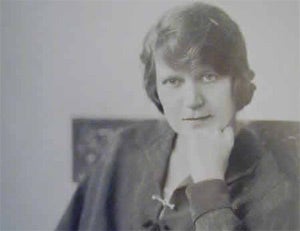Forgotten Authors No 54: Richmal Crompton

Your support helps us to tell the story
From reproductive rights to climate change to Big Tech, The Independent is on the ground when the story is developing. Whether it's investigating the financials of Elon Musk's pro-Trump PAC or producing our latest documentary, 'The A Word', which shines a light on the American women fighting for reproductive rights, we know how important it is to parse out the facts from the messaging.
At such a critical moment in US history, we need reporters on the ground. Your donation allows us to keep sending journalists to speak to both sides of the story.
The Independent is trusted by Americans across the entire political spectrum. And unlike many other quality news outlets, we choose not to lock Americans out of our reporting and analysis with paywalls. We believe quality journalism should be available to everyone, paid for by those who can afford it.
Your support makes all the difference.Writers of children's books tread a fine line. They need their lead characters to be interesting and a little wayward, but if they are too wild, the wrath of parents and librarians will be incurred; too soft, and their target audience will lose interest.
Certain schoolboy heroes from the past have fallen from fashion, the victims of changing attitudes; the once hugely popular Billy Bunter books have been expunged from history, presumably for being calorifically challenged (I'd like to have covered Frank Richards' series, but couldn't find any copies). Happily, several of Crompton's Just William books are available in reprint, though they are now a minority taste that probably appeals to older fans with a sense of nostalgia.
Most readers thought Richmal Crompton Lamburn was a man. So shy was she that she did not disabuse them of the notion, even as her anarchic, disruptive schoolboy, shown with his cap askew and tie undone, graced nearly 40 volumes of exploits. Crompton wrote for adults too, but her lasting claim to fame is this William Brown, whose adventures were populated with a gang of rebels called the Outlaws, including Ginger, Henry, Douglas and the awful, frilly, lisping Violet Elizabeth (catchphrase; "'I'm going to thcream and thcream until I'm thick!"), who was appropriately played in a TV adaptation by Bonnie Langford.
Crompton was born in Lancashire in 1890. The first William story appeared in Home magazine in 1919, and she continued writing them throughout her life, the last being published in 1970 after her death; there is something touching about a writer who never married producing books beloved by children.
With a certain amount of boring inevitability, Crompton's books were later attacked by critics for being irrelevant and middle-class, as if being able to write well was itself a liability. One reader points out that nowadays the books aren't a very easy read for preteens because they are peppered with words such as "epicurean", "apoplectic" and "discoursing", to which I say, "Look it up."
And of course, William's rebelliousness – performing a conjuring trick with an egg that goes wrong, trying to arrange a marriage for his sister or planning to sell Ginger's brothers as slaves to raise money – are hopelessly mild compared with the minefield of dangers facing modern parents. But perhaps an updated version, "William and the Crack Dealers", featuring a schoolboy wielding a sharpened screwdriver instead of a catapult, might rob the books of their childhood charms.
Join our commenting forum
Join thought-provoking conversations, follow other Independent readers and see their replies
Comments